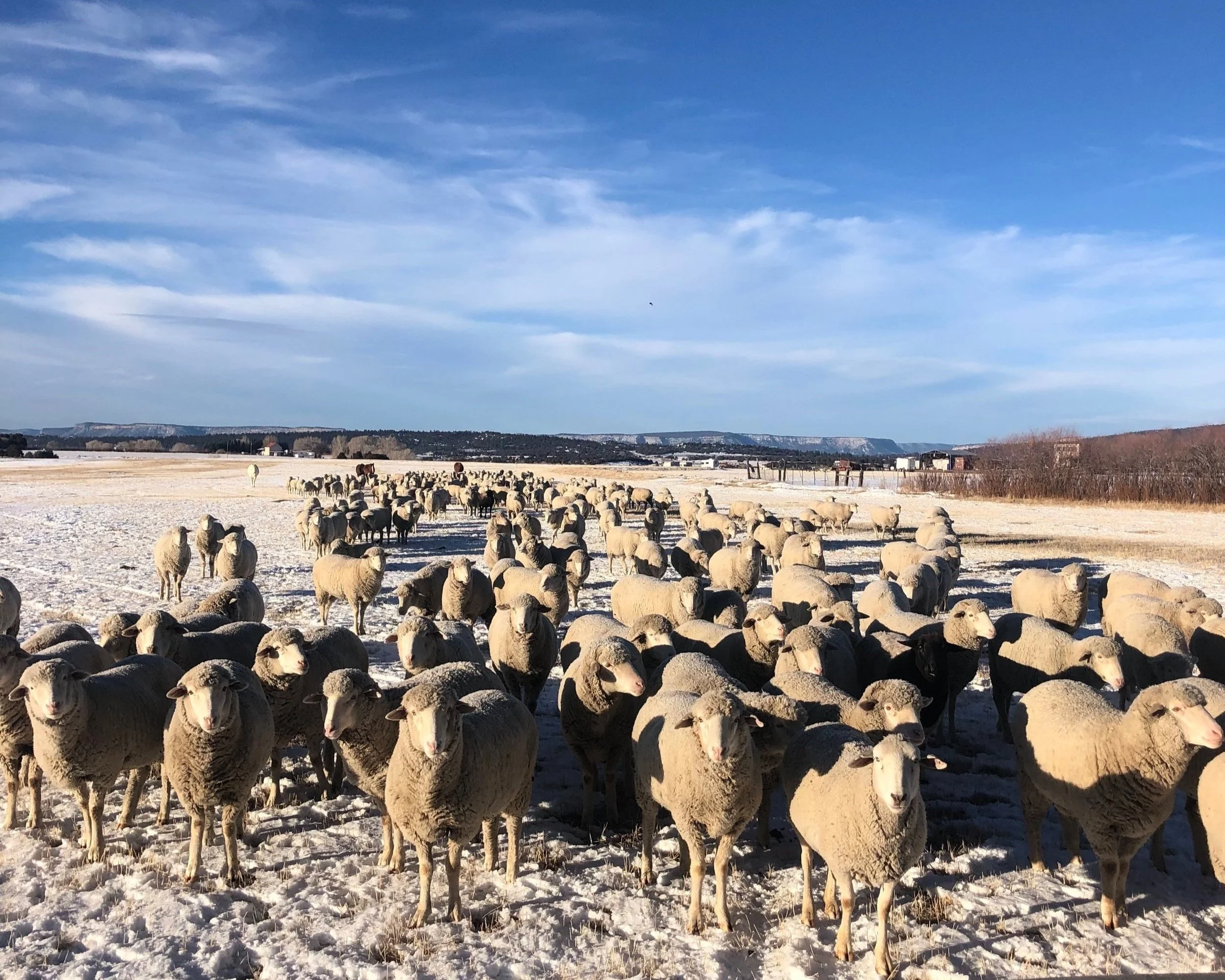At Shepherd’s Lamb and Tierra Wools, there’s no hiding the fact that we think sheep are super! And while we certainly love the wooly fiber they produce for us with its myriad uses and benefits, the sheep themselves are very special animals. Here are our top five favorite facts about the animals that call our ranch home. Enjoy!
1. Sheep are Symbionts
You may know that sheep are ruminants – grazing animals that extract nutrients from the herbivorous plants they eat in the four compartments of their stomachs. But did you know that these processes occur thanks to a huge variety of microflora, including bacteria, protozoa, yeasts, and fungi? These tiny organisms help sheep break down the plants they ingest in the rumen to make sugars, fatty acids, proteins, and vitamins the sheep can absorb. Some microbes also serve as a source of protein themselves when they’re passed from the rumen into another section of the stomach for digestion – sheep grow their own protein snacks!
2. Sheep are Smellers
Sheep have an excellent sense of smell and use this ability to keep track of other members of their flock. They have small glands near their eyes and between their toes that produce a scent which is unique to each sheep. Mother ewes recognize their babies by the lambs’ scent and the lambs learn to recognize their mothers by smell even before sound or sight. Their scent glands also play a role in marking territory, sexual communication, and other social interactions.
3. Sheep are Speedy
Although they may not be known for their speed or endurance, sheep are fast! When startled or under pursuit from predators, adult sheep can run for short distances at speeds of 25-30 mph. Newborn lambs can stand and walk within an hour of birth and within days love nothing better than frolicking and racing with each other. Bonus fact: when pursued, sheep prefer to run uphill!
4. Sheep are Smart
Sheep have a keen sense of smell, taste, and vision and use the information they gain from their senses to engage effectively with their environments. They are quick learners and have good memories for locations of water and feed as well as the individuals that make up their social group. They can be trained as pack animals and can even recognize human faces!
5. Sheep are Social
As herd animals, sheep depend on each other for survival and love to live in a large group. They form strong bonds with the sheep in their flock and often have a couple of preferred “sheep pals” they spend most of their time with. Every flock has its own social hierarchy, but these tend to be less strict than those formed by other ruminants. Ewes form strong, stable social bonds within maternal groups for life, with ewe lambs remaining in their mothers’ social group even after weaning. Rams also form social groups, although these tend to be more fluid than ewe social groups. Sheep separated from their flock demonstrates significant distress and anxiety until they are reunited with their group
We hope you enjoyed this fun foray into fabulous facts about sheep!
References
1. Mississippi States University Extension. http://extension.msstate.edu/publications/
understanding-the-ruminant-animal-digestivesystem#:~:text=True%20ruminants%2C%20
such%20as%20cattle,significantly%20into%20the%20right%20side.
2. The Open Sanctuary Project. https://opensanctuary.org/fun-facts-about-sheep/
3. Starting Run. https://startingrun.com/understanding-sheep-speed-how-fast-can-this-farm-animal-run/#google_vignette
4. Countryside. https://www.iamcountryside.com/sheep/how-smart-are-sheep/
5. Merck Veterinary Manual. https://www.merckvetmanual.com/behavior/normal-social-behavior-and-behavioral-problems-of-domestic-animals/social-behavior-of-sheep






